Filter by

Planning and analyzing teaching: using the variation theory of learning
Using illustrative teaching case studies, this book demonstrates how teaching informed by a learning theory, specifically variation theory, can equip teachers to facilitate possibilities for students' learning in effective and powerful ways. For a long period of time teaching has been "black-boxed", in favour of other explanations of why students learn or not, such as motivation and social inte…
- Edition
- -
- ISBN/ISSN
- 9781003194903
- Collation
- xiii, 103 pages; illustration
- Series Title
- -
- Call Number
- 371.102 KUL p
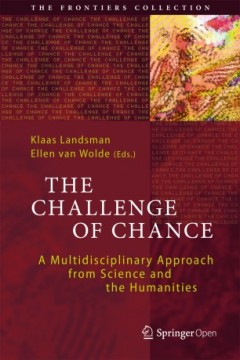
The challenge of chance : a multidisciplinary approach from science and the h…
This book presents a multidisciplinary perspective on chance, with contributions from distinguished researchers in the areas of biology, cognitive neuroscience, economics, genetics, general history, law, linguistics, logic, mathematical physics, statistics, theology and philosophy. The individual chapters are bound together by a general introduction followed by an opening chapter that surveys 2…
- Edition
- -
- ISBN/ISSN
- 9783319263007
- Collation
- vii, 276p. : ill.
- Series Title
- -
- Call Number
- 123.3 KLA t
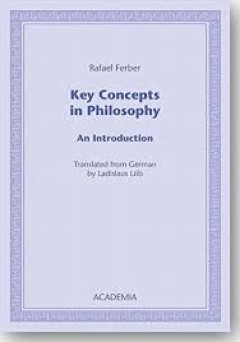
Key concepts in philosophy: an introduction
The book provides an introduction to six fundamental philosophy concepts - philosophy, language, knowledge, truth, being and good. At the same time, it aims to initiate its readers into the process of philosophical thinking. The book is addressed to students and laypeople, but also contains new ideas for specialists. It is written in a clear, accessible and engaging style, and its author "share…
- Edition
- -
- ISBN/ISSN
- 9783896656483
- Collation
- 1 online resource (242 pages)
- Series Title
- -
- Call Number
- 100 FER k

Finding, inheriting or borrowing? The construction and transfer of knowledge …
Since the dawn of humanity, people have developed concepts about themselves and the natural world in which they live. This volume aims at investigating the construction and transfer of such concepts between and within various ancient and medieval cultures. The single contributions try to answer questions concerning the sources of knowledge, the strategies of transfer and legitimation as well as…
- Edition
- -
- ISBN/ISSN
- 9783839442364
- Collation
- 408 p.; 22 cm.
- Series Title
- Mainzer Historische Kulturwissenschaften, 39
- Call Number
- 900 FIN f
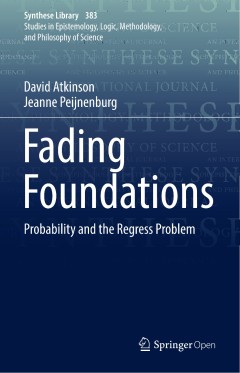
Fading foundations : probability and the regress problem
This book addresses the age-old problem of infinite regresses in epistemology. How can we ever come to know something if knowing requires having good reasons, and reasons can only be good if they are backed by good reasons in turn? The problem has puzzled philosophers ever since antiquity, giving rise to what is often called Agrippa's Trilemma. The current volume approaches the old problem in a…
- Edition
- -
- ISBN/ISSN
- 9783319582955
- Collation
- xi, 238p. : ill.
- Series Title
- -
- Call Number
- 121 ATK f
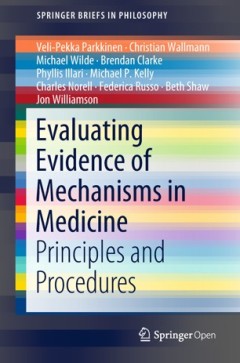
Evaluating evidence of mechanisms in medicine : principles and procedures
This book is the first to develop explicit methods for evaluating evidence of mechanisms in the field of medicine. It explains why it can be important to make this evidence explicit, and describes how to take such evidence into account in the evidence appraisal process. In addition, it develops procedures for seeking evidence of mechanisms, for evaluating evidence of mechanisms, and for combini…
- Edition
- -
- ISBN/ISSN
- 9783319946108
- Collation
- xviii, 125p. : ill.
- Series Title
- -
- Call Number
- 610.1 EVA e
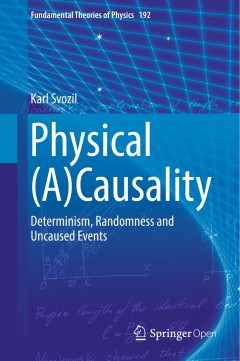
Physical (A)Causality : determinism, randomness and uncaused events
This book addresses the physical phenomenon of events that seem to occur spontaneously and without any known cause. These are to be contrasted with events that happen in a (pre-)determined, predictable, lawful, and causal way. All our knowledge is based on self-reflexive theorizing, as well as on operational means of empirical perception. Some of the questions that arise are the following: a…
- Edition
- -
- ISBN/ISSN
- 9783319708157
- Collation
- xiv, 219p. : ill.
- Series Title
- -
- Call Number
- 530.01 SVO p

Word knowledge and word usage
Word storage and processing define a multi-factorial domain of scientific inquiry whose thorough investigation goes well beyond the boundaries of traditional disciplinary taxonomies, to require synergic integration of a wide range of methods, techniques and empirical and experimental findings. The present book intends to approach a few central issues concerning the organization, structure and f…
- Edition
- -
- ISBN/ISSN
- 9783110440577
- Collation
- IX< 717 p.
- Series Title
- -
- Call Number
- 121 WOR w
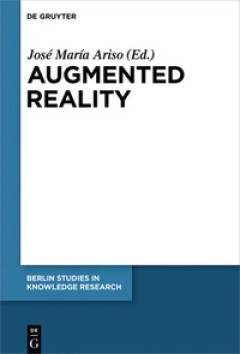
Augmented reality : reflections on Its contribution to knowledge formation
There is at present no publication specifically dedicated to analyzing the philosophical implications of augmented reality, especially regarding knowledge formation, which constitutes a fundamental trait of knowledge society. That is why this volume includes an analysis of the applications and implications of augmented reality. While applications cover diverse fields like psychopathology and ed…
- Edition
- -
- ISBN/ISSN
- 9783110497656
- Collation
- VII, 322 p.
- Series Title
- Berlin Studies in Knowledge Research, 11
- Call Number
- 100 AUG a

The lecturer's guide to quality and standards in colleges and universities
A follow-up volume to "Managing Teaching and Learning in Further Education and Higher Education", this text provides a guide to managing quality and standards from the lecturer's point of view. It covers key issues such as teaching, learning, student support, assessment, evaluation, course design, bidding for and managing resources, marketing and research.; Based on the model of lecturer as ref…
- Edition
- -
- ISBN/ISSN
- 9780203975534
- Collation
- viii, 224p. : ill.
- Series Title
- -
- Call Number
- 378.1250941 ASH l
 Computer Science, Information & General Works
Computer Science, Information & General Works  Philosophy & Psychology
Philosophy & Psychology  Religion
Religion  Social Sciences
Social Sciences  Language
Language  Pure Science
Pure Science  Applied Sciences
Applied Sciences  Art & Recreation
Art & Recreation  Literature
Literature  History & Geography
History & Geography